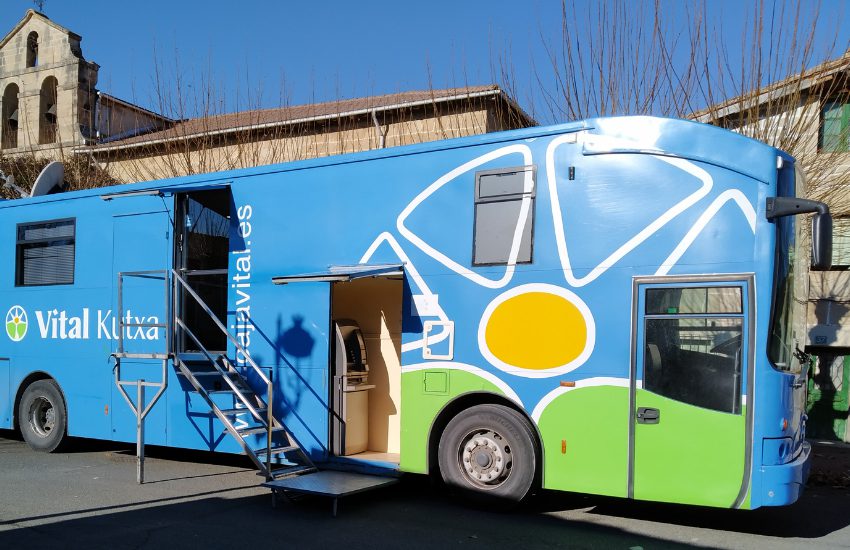Depopulation is an eminently rural demographic phenomenon and is particularly intense in Spain. Over the past 40 years, the country has undergone an economic and social revolution that has resulted in large-scale migratory movements from rural areas to large cities
The National Statistics Institute (INE) published last month the definitive data on the municipal census in Spain as of 1 January 2021, certifying that Spain lost resident population for the first time since 2016. And although Spain has grown by 6.2 million people over the last two decades, the population is concentrated in the cities. The dearth of employment and opportunities, as well as limited access to basic infrastructure and services, has severely affected small municipalities in rural Spain, where the majority of the population is very old.
However, Spain not only faces important demographic challenges, but also the challenge posed by the digital divide, which refers to the difference in access to and skills in the use of new technologies. However, the recent Funcas study Report on the Spanish banking sector in an environment of changing productivity has shown that the financial digitalisation process has accelerated especially among the elderly since the outbreak of the pandemic caused by the coronavirus. The percentage of elderly digital customers increased by 27.7%. This is the age group that has experienced the greatest increase in the level of digitisation in this period. The "financial digital divides" that exist along age lines have been reduced. Currently, 52.2% of internet users over the age of 65 regularly use online banking.
Both demographic and technological challenges are having a major impact on the provision of all types of services: medical, pharmaceutical, educational, cultural, as well as banking. This is a reality experienced by the inhabitants of inland territories in several regions of Spain such as Aragon, Castilla y León, Extremadura and La Rioja, where the elderly are among those potentially most affected by these challenges.
The Spanish banking system has the second largest branch network in the European Union (5 for every 10,000 inhabitants), only behind France. This explains why the percentage of the Spanish population residing in municipalities with at least one bank branch is 97%, having fallen by only 1 p.p. when compared to 2008. However, the banking sector is well aware that the elderly are the backbone of society, making valuable contributions to family and social well-being. For this reason, financial institutions have not abandoned these small municipalities and have continued to provide service, staying true to their commitment to the territories, offering these services differently.
In this regard, CECA entities (CaixaBank, Kutxabank and Cajasur Banco, Abanca, Unicaja Banco, Ibercaja Banco, Caixa Ontinyent, Colonya Pollença and Cecabank) have long-standing initiatives to ensure access to basic financial services, such as withdrawing cash, paying bills by direct debit or making a deposit. Faced with the needs of these regions, banks have made a remarkable effort to maintain their activity in these municipalities, and have developed services adapted to the financial level of their inhabitants, usually elderly people.
COMMITMENT TO SERVICE
To ensure adequate service to the residents of inland towns where there is no branch office, several initiatives have been launched. These include the generalisation of a fleet of mobile branches (ofibuses) - the CECA sector has 23 ofibuses in Spain that cover close to 457,000 customers and travel to around 600 municipalities - that maintain a branch in these places that includes all the necessary services for customers, from withdrawing or depositing cash, to carrying out banking transactions, applying for a loan or signing policies. Similarly, the networks of financial agents who, without a permanent establishment, provide personal service to customers, have been extended.
According to the Bank of Spain, vulnerability in access to cash in the country is low throughout most of Spain. In order to diversify the way cash is provided, banks have begun to implement more innovative solutions, such as cashback and cash-in-shop (withdrawal or deposit of cash in a commercial establishment), which helps to reduce vulnerability in access to cash in Spain.
In addition, financial institutions are implementing formulas that enable the elderly to improve and facilitate their user experience on digital channels. In accordance with the Strategic Protocol to Reinforce the Social and Sustainable Commitment of the Banking Sector, approved in July 2021, CECA and AEB are working on an in-depth analysis of the problem and on the development of additional joint measures to help the most disadvantaged populations in rural areas.













